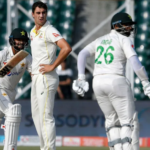Introduction to the 2019 CONCACAF Gold Cup
The 2019 CONCACAF Gold Cup has come to a thrilling conclusion, leaving soccer fans on the edge of their seats and craving for more. This prestigious tournament, held every two years, showcased the best of North and Central America as well as the Caribbean. From pulsating matches to jaw-dropping upsets, this edition had it all. Now, let’s dive deep into the exhilarating highlights that made this year’s Gold Cup one for the history books! Whether you’re a die-hard football fanatic or simply someone who enjoys a good sporting spectacle, there is something in store for everyone from the 2019 CONCACAF Gold Cup. So, grab your virtual seat in our proverbial stadium and join us as we relive the most memorable moments from this electrifying tournament. Get ready to cheer, gasp, and celebrate because here are our top five takeaways from the 2019 CONCACAF Gold Cup!
Top Teams and Players to Watch
When it comes to the CONCACAF Gold Cup, there is no shortage of top teams and players to keep an eye on. From perennial powerhouses to emerging talents, this tournament showcases some of the best talent in North and Central America.
One team that always commands attention is Mexico. With a rich soccer history and a roster filled with stars like Javier Hernandez and Hirving Lozano, El Tri are always a force to be reckoned with. Their attacking prowess and technical ability make them a team that can’t be underestimated.
Another team that has been making waves in recent years is the United States. Led by Christian Pulisic, who is widely regarded as one of the most promising young talents in world football, the USMNT has shown great potential. With new coach Gregg Berhalter at the helm, they are looking to make their mark on this year’s tournament.
Costa Rica is another team worth keeping an eye on. Known for their solid defense and disciplined style of play, Los Ticos have proven themselves as tough competitors in past tournaments. Key players like Bryan Ruiz and Joel Campbell bring experience and skill to their squad.
In addition to these established teams, there are also some exciting up-and-coming players from lesser-known nations who could turn heads during the tournament. Players like Alphonso Davies from Canada or Andre-Pierre Gignac from Martinique have already made names for themselves at the club level and will be looking to make an impact on the international stage.
With so many talented teams and players competing in this year’s CONCACAF Gold Cup, it promises to be an exhilarating showcase of soccer excellence. Whether you’re rooting for traditional powerhouses or hoping for underdogs to rise through the ranks, there will undoubtedly be plenty of thrilling moments throughout the tournament.
2019 CONCACAF Gold Cup
| Copa de Oro de la Concacaf 2019 (in Spanish) |
|
|---|---|
| Tournament details | |
| Host countries | Costa Rica Jamaica United States |
| Dates | June 15 – July 7 |
| Teams | 16 |
| Venue(s) | 17 (in 16 host cities) |
| Final positions | |
| Champions | Mexico (8th title) |
| Runners-up | United States |
| Tournament statistics | |
| Matches played | 31 |
| Goals scored | 96 (3.1 per match) |
| Attendance | 1,043,168 (33,651 per match) |
| Top scorer(s) | Jonathan David (6 goals) |
| Best player(s) | Raúl Jiménez |
| Best young player | Christian Pulisic |
| Best goalkeeper | Guillermo Ochoa |
| Fair play award | United States |
Exciting Matches and Surprising Upsets
Exciting Matches and Surprising Upsets
The 2019 CONCACAF Gold Cup was packed with thrilling matches and unexpected turnarounds that left fans on the edge of their seats. From nail-biting finishes to stunning upsets, this tournament had it all.
One match that stood out was the quarterfinal clash between Mexico and Costa Rica. It was a true battle of titans, with both teams showcasing their skills and determination. The game went into extra time after a goalless draw in regular time. In the end, it was Mexico who emerged victorious, thanks to a late goal from Raúl Jiménez.
Another memorable match was the semifinal showdown between Haiti and Canada. Many expected Canada to cruise through to the final, but Haiti had other plans. They put up an incredible fight, equalizing in stoppage time to send the game into extra time. In a dramatic penalty shootout, Haiti prevailed against all odds and secured their spot in the final four.
But perhaps one of the biggest upsets came in the group stage when Curaçao held Jamaica to a surprising 1-1 draw. Jamaica had been considered one of the strongest teams in their group, but Curaçao proved they were not to be underestimated.
Throughout the tournament, there were moments where underdogs rose above expectations and favorites faltered. These unpredictable outcomes only added to the excitement for both players and spectators alike.
In every corner of each stadium during these matches ran waves of emotions – joyous celebrations as goals were scored or heartbreaking disappointment when chances were missed by mere inches.
Football is beautiful because it can bring about such intense emotions within us – hopefulness before kickoff transforms into sheer ecstasy or utter despair at full-time whistle blows.
The 2019 CONCACAF Gold Cup provided plenty of these emotional roller coasters for fans around North America; never knowing what would happen next made each moment even more exhilarating.
In the end, it’s these thrilling matches and surprising upsets that make.
Controversies and Memorable Moments
The 2019 CONCACAF Gold Cup was not without its fair share of controversies and memorable moments. From questionable referee decisions to heated on-field confrontations, the tournament provided plenty of drama for fans to sink their teeth into.
One particularly controversial moment came during the quarter-final match between Mexico and Costa Rica. In the dying minutes of regular time, a penalty was awarded to Mexico amidst claims of simulation from the Costa Rican players. The decision proved decisive as Mexico converted the spot-kick, securing their place in the semi-finals. It sparked debates about fair play and sportsmanship within the game.
Another unforgettable moment occurred in the final between Mexico and the United States. With tensions running high, tempers flared when a clash between players led to a mass confrontation near midfield. It showcased both teams’ passion but also raised concerns about player conduct on such grand stages.
Off-the-field controversies were also prevalent throughout the tournament. One notable incident involved Jamaica’s head coach accusing referees of bias towards certain teams after his side suffered a heartbreaking defeat in extra time against Panama.
While these controversies may have overshadowed some aspects of the competition, there were also many positive memorable moments that will be etched in fans’ minds forever.
One such instance was Haiti’s impressive run to reach their first-ever semi-finals in Gold Cup history—an inspiring achievement for Caribbean football overall. Their spirited performances captivated audiences worldwide and demonstrated that talent can emerge from unexpected places within CONCACAF.
Another standout performance came from Jonathan David, Canada’s young star striker who finished as joint top scorer with six goals—a remarkable feat for someone so young and relatively unknown prior to this tournament. His explosive displays put him firmly on international radars while giving hope for Canadian soccer enthusiasts looking towards future success.
Despite controversies marring some parts of this edition of CONCACAF Gold Cup, it is important not to overlook its significance in shaping the regional football landscape. It provided a platform for rising stars and allowed.
Impact on International Soccer Scene
The 2019 CONCACAF Gold Cup made waves in the international soccer scene, leaving a lasting impact that cannot be ignored. With teams from North and Central America competing for glory, the tournament showcased the talent and potential within this region of the world.
It provided a platform for lesser-known teams to shine on the global stage. Countries such as Haiti and Curacao surprised many with their impressive performances against more established opponents. This exposure not only raised their profiles but also highlighted the growing depth of talent in CONCACAF.
It allowed players to showcase their skills to an international audience. Stars like Christian Pulisic from the United States and Jonathan David from Canada used this tournament as a steppingstone to attract attention from scouts around the world. Their standout performances opened doors for potential transfers or opportunities at bigger clubs.
Furthermore, this year’s Gold Cup emphasized unity among neighboring nations through sportsmanship and fair play. Despite fierce rivalries between countries like Mexico and USA, moments of mutual respect were evident throughout the tournament, emphasizing how football can bridge cultural gaps and foster camaraderie between nations.
In addition to its immediate impact, participation in a prestigious competition like Gold Cup carries long-term benefits for participating teams. The experience gained by players elevates national team programs back home which leads to further development of grassroots soccer infrastructure – benefiting future generations of aspiring athletes.
It is clear that the 2019 CONCACAF Gold Cup had far-reaching implications beyond just crowning a champion. It elevated lesser-known teams onto a global stage while giving established players an opportunity to impress onlookers worldwide. Moreover, it served as a reminder that football has tremendous power in uniting people across borders while simultaneously fostering growth within domestic soccer programs.
Without summarizing your answer or using phrases like “in conclusion” or “overall”, create one final sentence here that will conclude your blog section about “Impact on International Soccer Scene” in a clear and engaging way.
Lessons Learned from the Tournament
1. The importance of squad depth: One key takeaway from the 2019 CONCACAF Gold Cup is that having a strong and deep squad can make all the difference in a tournament. Teams like Mexico and the United States showcased their depth by fielding different lineups throughout the competition, allowing players to rest and avoid injuries. This strategy proved successful as both teams reached the knockout stages and showed resilience when faced with challenging opponents.
2. The rise of emerging nations: Another lesson learned from this tournament is that smaller nations within CONCACAF are making significant strides in their development. Countries like Haiti and Jamaica demonstrated that they are no longer underdogs, pushing traditional powerhouses to their limits. These performances highlight the growth of football across the region and serve as inspiration for other aspiring teams.
3. VAR’s impact on decision-making: The introduction of Video Assistant Referee (VAR) technology was one of the notable features of this Gold Cup, providing an opportunity to review contentious decisions during matches. While some praised its implementation for ensuring fairness, others criticized it for disrupting game flow and causing confusion among players and fans alike.
4. Mental strength is crucial: Throughout the tournament, we witnessed several comebacks, including epic battles such as Mexico’s thrilling victory against Costa Rica in penalties during quarterfinals or Haiti’s late goal against Canada to secure a spot in semifinals. These moments emphasized not only technical skills but also mental toughness—a reminder that perseverance can turn games around even when facing adversity.
5.Investment in youth development pays off: This year’s Gold Cup highlighted how investing in youth development programs yields positive results for national teams. Several young talents showcased their potential on a big stage, proving that nurturing talent at an early age fosters long-term success for countries within CONCACAF.
Overall, the 2019 CONCACAF Gold Cup provided us with exciting matches, unexpected upsets, controversial moments, and valuable lessons. As the tournament concluded, fans.
Conclusion: The Future of CONCACAF Gold Cup
As the 2019 CONCACAF Gold Cup comes to a thrilling end, it’s clear that the tournament has once again showcased the immense talent and passion for soccer in North and Central America. With five key takeaways from this year’s event, we can reflect on what made it truly special.
The top teams and players who took part in the tournament brought their A-game. From Mexico’s dynamic attack led by Hirving Lozano to Christian Pulisic’s electrifying performances for Team USA, these stars shone brightly on the international stage. Their skill and determination were a testament to the high level of competition in CONCACAF.
There were plenty of exciting matches and surprising upsets throughout the tournament. From Jamaica’s stunning victory over USA in the semi-finals to Haiti reaching their first-ever semifinal appearance, these unexpected results added an element of unpredictability and excitement to each match. It goes to show that anything can happen in football.
Controversies also played a role in this year’s Gold Cup. VAR decisions sparked debates among fans and experts alike, highlighting both its potential benefits as well as its flaws. Nonetheless, these controversial moments served as talking points long after the final whistle had blown.
In addition to controversies, there were memorable moments that will be etched into our minds forever – Andrea Pirlo presenting Mexico with their championship trophy or Martinique scoring a last-minute winner against Canada before being eliminated from the group stage are just two examples out of many unforgettable incidents during this edition of CONCACAF Gold Cup.
Furthermore, beyond individual matches or scandals, it is important to recognize how impactful this tournament is on the international soccer scene. The exposure provided for lesser-known nations like Curacao or Bermuda shows that underdogs have a chance at making waves on a global platform. This elevates not only their national team but also inspires future generations of players to strive for greatness.








